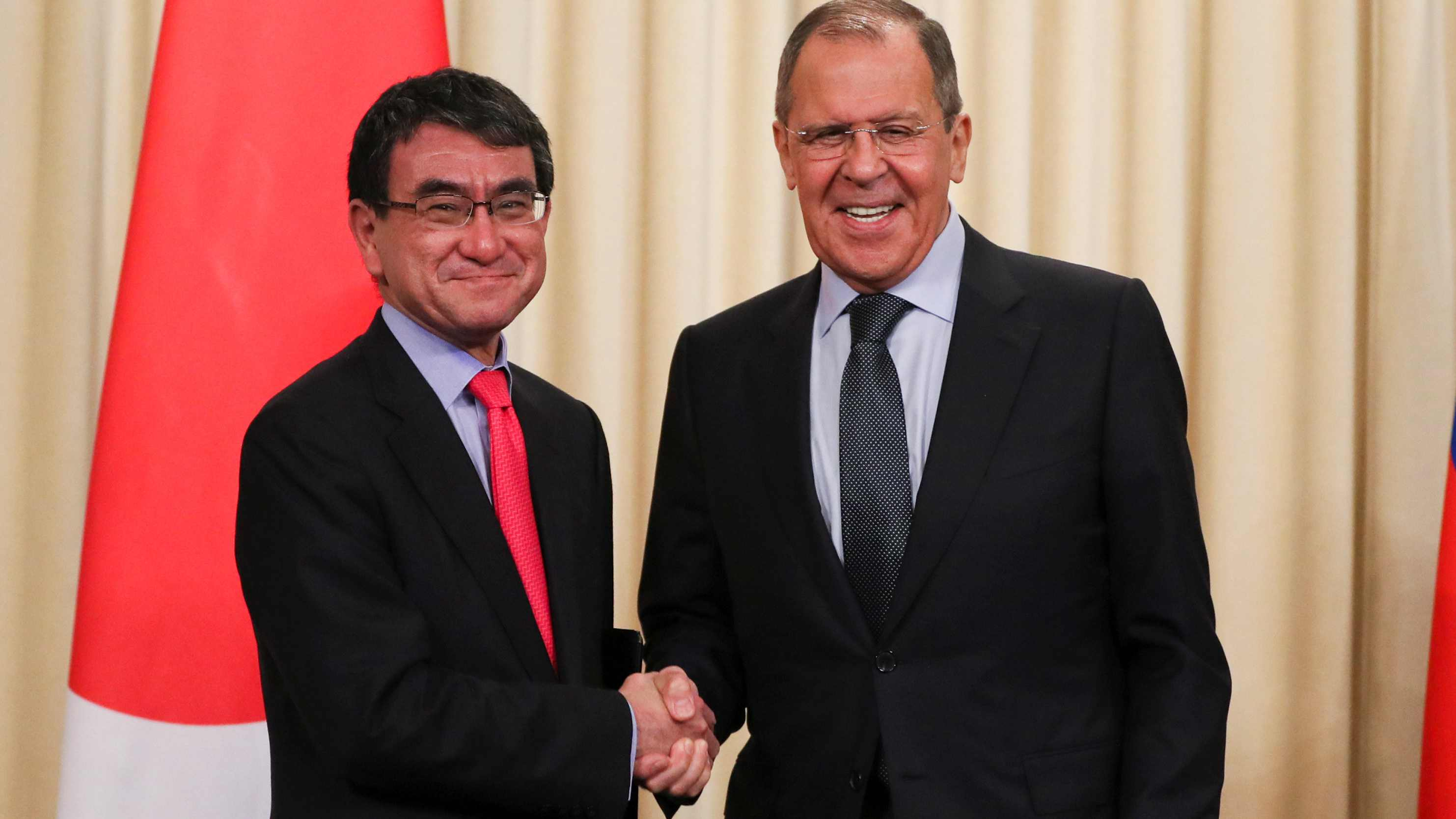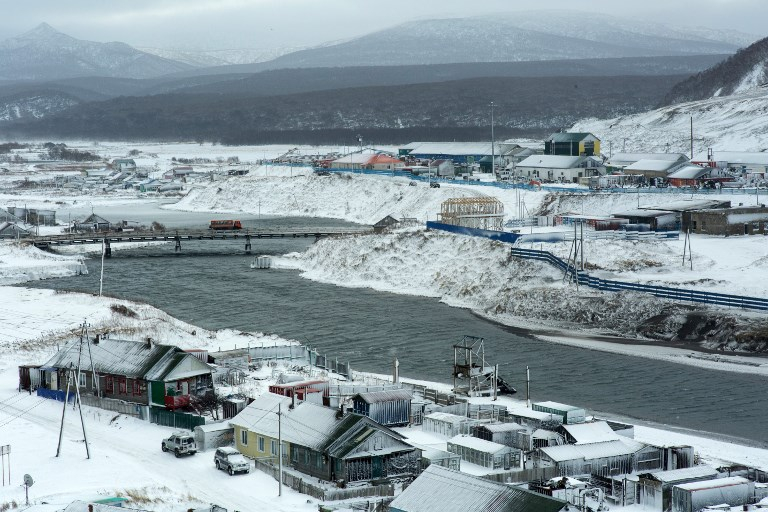
Asia Pacific
20:13, 10-May-2019
Russia, Japan say differences remain over disputed islands
CGTN

Russia and Japan's top diplomats said Friday there was a way to go before their countries could resolve a World War II-era dispute over a chain of islands, following a meeting in Moscow.
Ahead of talks, Russia's Sergei Lavrov said "significant differences" remained between Moscow and Tokyo's positions, despite several previous rounds of negotiations.
"The task is not easy, it's clear it will only be solved by long, painstaking and creative work," Lavrov told journalists following his meeting with Japanese counterpart Taro Kono.
The territorial dispute centers on four islands, between the Sea of Okhotsk and the Pacific Ocean, seized by the Soviet army in the last days of World War II.

A picture taken on December 12, 2016 shows the town of Kurilsk on the island of Iturup. /AFP Photo
A picture taken on December 12, 2016 shows the town of Kurilsk on the island of Iturup. /AFP Photo
The string of volcanic islands are called the Kurils by Russia and the Northern Territories by Japan.
"Solving a problem that remains unresolved more than 70 years on from the end of the war is not easy," Kono said at a joint press conference, in remarks translated into Russian.
"It cannot be said that as a result of today's talks we were able to overcome these differences."
Tokyo has refused to recognize Moscow's sovereignty over the islands, preventing the two countries from signing a peace treaty formally ending hostilities.
Prime Minister Shinzo Abe and President Vladimir Putin have made resolving the dispute a priority – meeting 25 times since 2013 in an effort to build cooperation.
But both face domestic opposition to any compromise and at a meeting in Moscow in January fell short of reaching an agreement.
A further meeting between the foreign and defense ministers of the countries will take place at the end of May in Tokyo, Lavrov said Friday.
Moscow has said negotiations should be based on a 1956 Soviet-Japanese declaration which calls for the signing of a peace accord before the possible handover of two of the smaller islands to Japan.
But giving away even uninhabited islands would be poorly received in Russia, where World War II is hugely symbolic and post-war territorial gains are seen as non-negotiable.
Moscow in recent months has taken further steps to consolidate its hold on the islands, which are home to some 20,000 people.
In December Russia said it built four new military barracks in the Kurils, prompting an angry response from Tokyo. In February it said it had laid fiber-optic cables to provide homes and businesses there with high-speed internet access.
(Cover: Russian Foreign Minister Sergei Lavrov shakes hands with his Japanese counterpart Taro Kono after a news conference in Moscow, Russia May 10, 2019. /Reuters Photo)
5801km
Source(s): AFP

SITEMAP
Copyright © 2018 CGTN. Beijing ICP prepared NO.16065310-3
Copyright © 2018 CGTN. Beijing ICP prepared NO.16065310-3